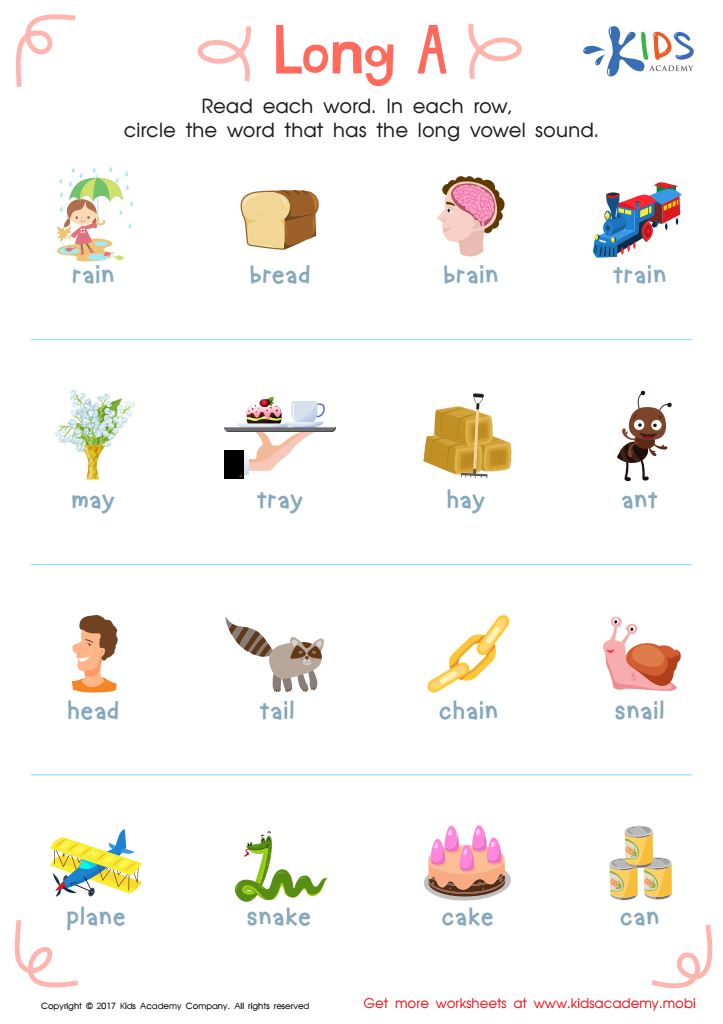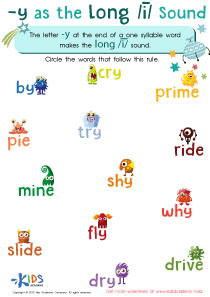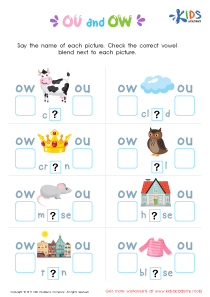Normal Long Vowels Worksheets for Ages 3-9 - Page 2
30 filtered results
-
From - To
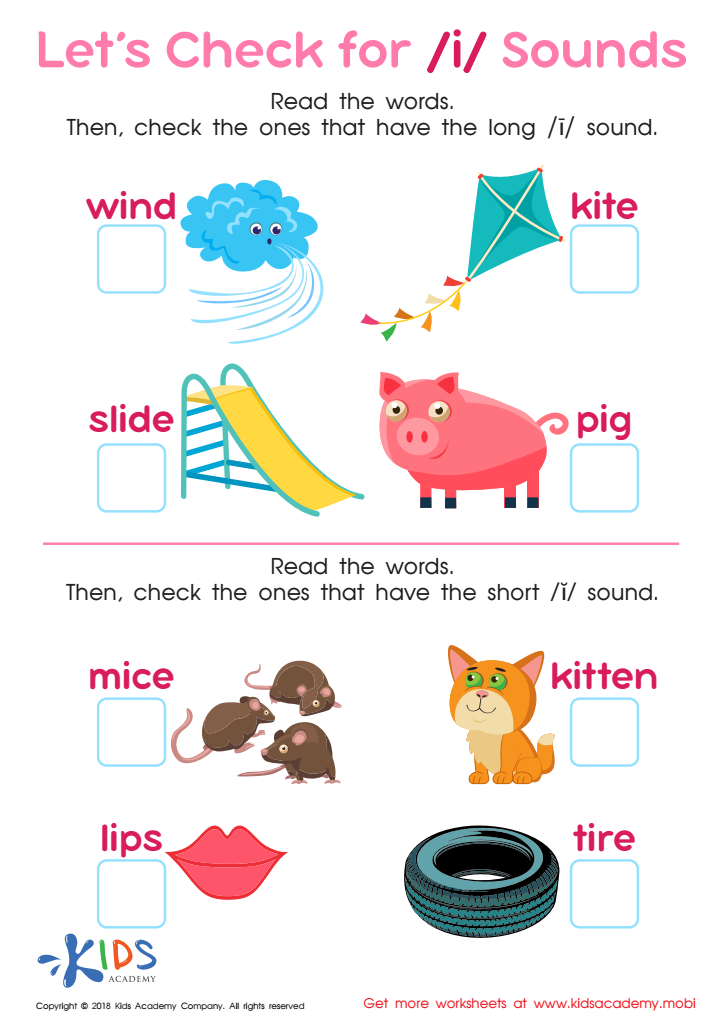

Let's Check for «i» Sounds Worksheet


Long and Short E Worksheet
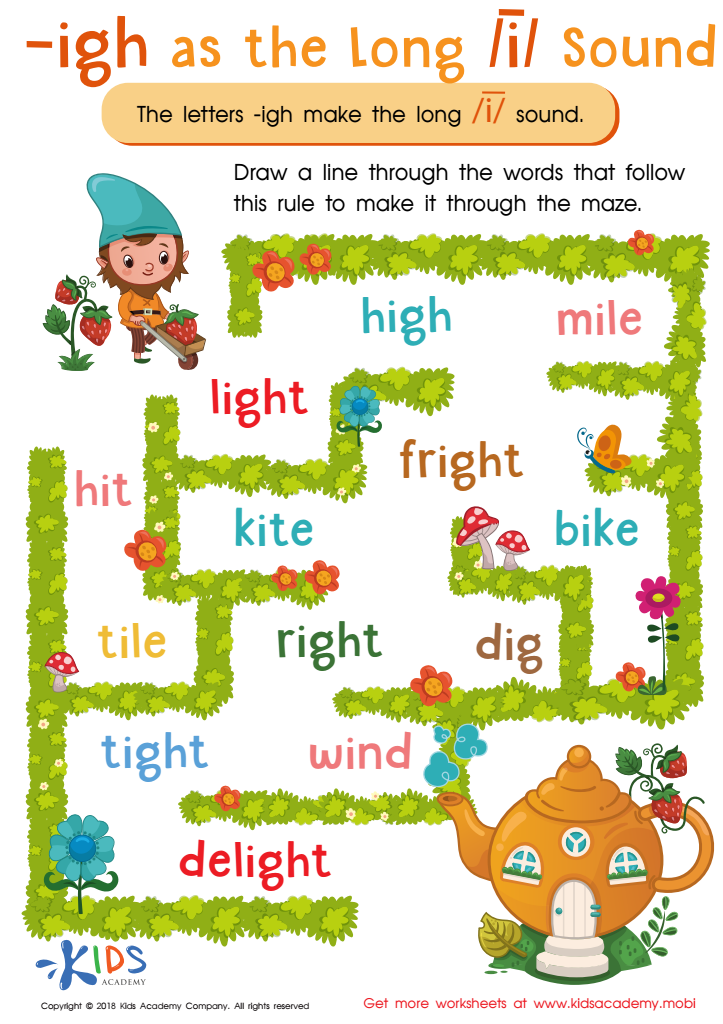

Reading: IGH as Long I Worksheet
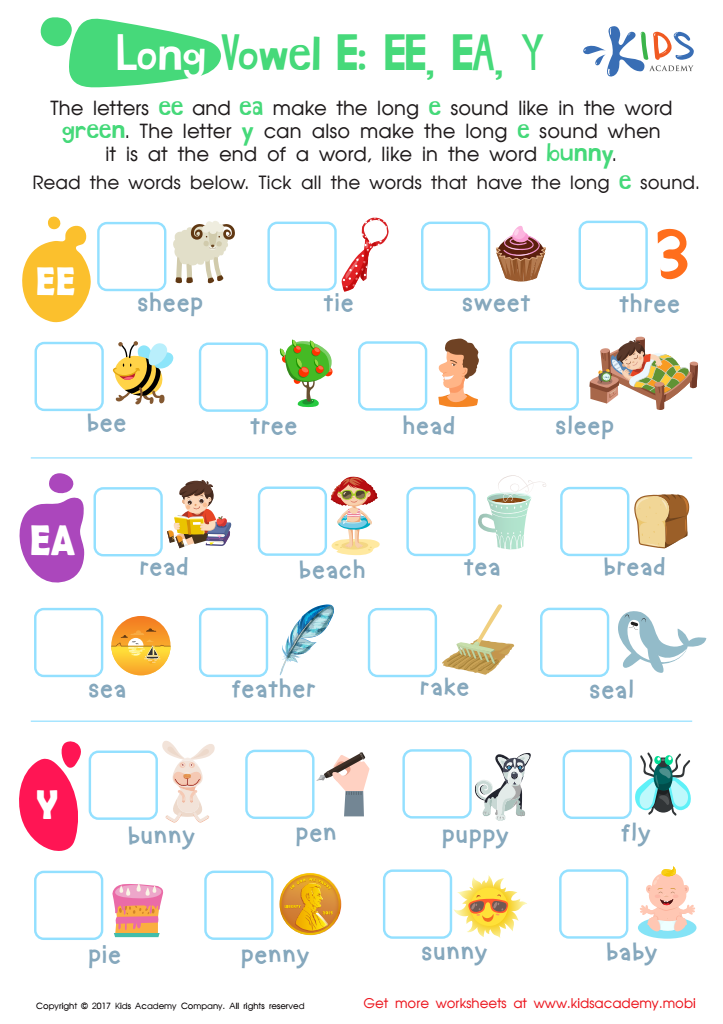

Long Vowel E Printable
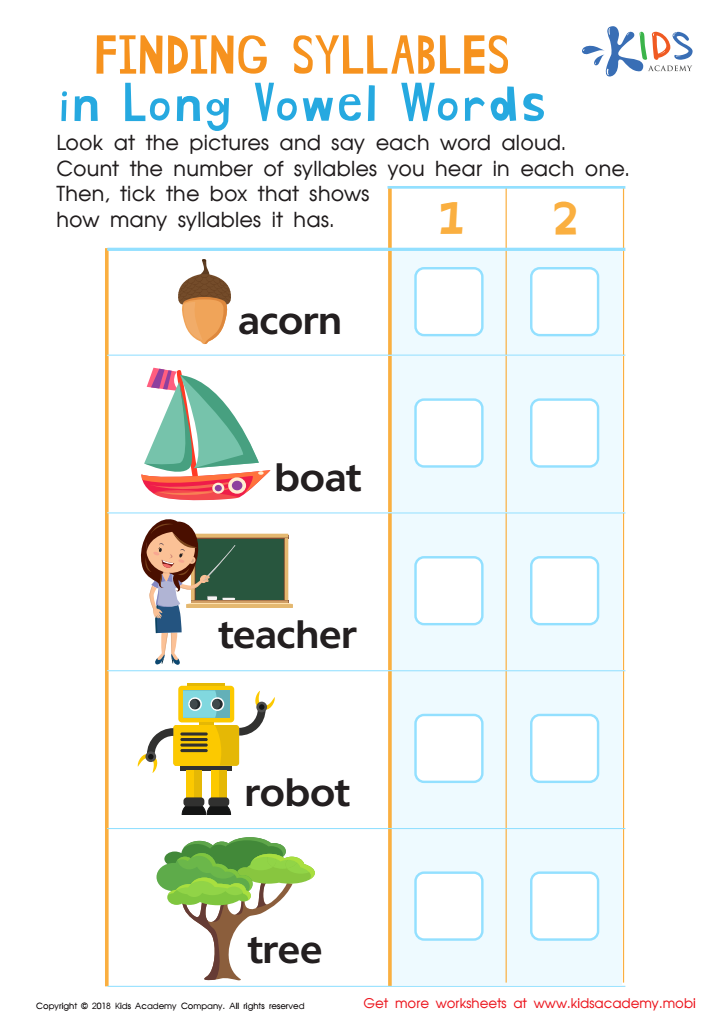

Finding Syllables in Long Vowel Words Worksheet
Normal long vowels play a crucial role in early literacy for children aged 3-9. Understanding and recognizing these vowel sounds is fundamental in developing phonemic awareness—an essential skill for reading. Long vowels, such as the sounds in "make," "feet," and "time," provide children with the tools to decode words, ultimately enhancing their reading fluency and comprehension.
For parents and teachers, focusing on long vowels aids in fostering a supportive learning environment. These sounds help children differentiate between similar words, aiding spelling skills and vocabulary development. Early exposure to long vowels through songs, games, and storybooks helps solidify these concepts in a fun and engaging manner.
Moreover, mastering long vowels lays the foundation for linguistic skills critical for later academic success. Familiarity with these sounds allows children to tackle more complex reading materials as they advance. Recognizing that long vowels frequently appear in many commonly used words also assists in enhancing children's self-confidence in their reading abilities.
In summary, focusing on normal long vowels empowers young learners to build essential reading and spelling skills, setting them on a path toward literacy. Parents and teachers play a pivotal role in this developmental stage by emphasizing these crucial components of language.
 Assign to My Students
Assign to My Students
